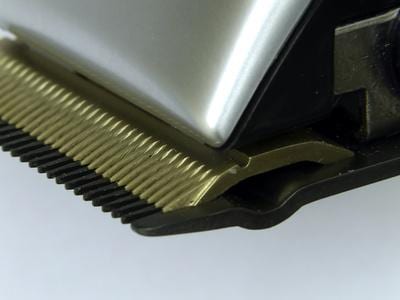Sometimes, when you shave your legs or pluck your eyebrows, the small bit of hair that remains pushes itself back into your skin. When the hair begins to grow again, it does not grow out. Instead, it grows in. If you develop red or pink bumps on an area where you’ve recently removed hair, you most likely now have ingrown hairs. Coarse, thick or curly hair tends to grow inward. Several treatments exist for ingrown hair. You can choose one, based on the severity of your condition.
Salicylic Acid Cleansers
One way to treat ingrown hairs is to remove the skin around them gently. If you have a few ingrown hairs, you may want to try a cleanser with salicylic acid in it. Commonly used to clear up acne and pimples, salicylic acid exfoliates dead skin cells, which can free the ingrown hair.
Cleanser or Ointment with Retinoids
Retinoids, which come from vitamin A, also help remove dead skin cells when applied to ingrown hairs. According to MayoClinic.com, a retinoid cream may also help thin the skin and prevent hair from digging into the follicle. Retinoids can also help even the tone of your skin.
Corticosteroid Creams
An unfortunate side effect of ingrown hairs is irritated skin. While corticosteroids will not remove the ingrown hair, they can help calm inflamed skin.
Scrub with a Toothbrush
Another way to remove ingrown hairs is to brush the area gently with a toothbrush. MayoClinic.com suggests using a soft brush and a circular motion before you shave and before bed.
Chemical Depilatory
According to MedicineNet, you can treat ingrown hairs with a chemical hair remover. The depilatory will loosen the hair in the follicle, so that a tip of the hair sticks out of the follicle. If you choose to treat ingrown hairs with a chemical depilatory, do not use it every day. If you experience irritation, stop using it or treat your skin with a cortisone cream.
Antibiotic Creams
If your ingrown hairs become infected, you need to treat the infection as well as remove the hairs. Infected ingrown hairs usually become pus-filled. An antibiotic cream, such as erythromycin, will get the infection under control.
Products with Benzoyl Peroxide
Another way to treat infected ingrown hairs is to wash the area with a cleanser that contains benzoyl peroxide. Cleansers designed to treat acne often contain benzoyl peroxide, since it kills bacteria and removes excess skin cells.
Tweezing
You can attempt to treat ingrown hairs by removing them–one by one–with a pair of sterile tweezers or a sterilized needle. Tweezing or removing the hair with a needle will only be helpful if you have one or two ingrown hairs. If you have a great many ingrown hairs, you may make the problem worse by irritating your skin. Be extremely careful when you pull the hair out.
Hair Reduction
Some treatments will reduce the amount of hair that grows on your body, such as facial hair or hair on the bikini line. According to MayoClinic.com, eflornithine hydrochloride cream is a topical cream that slows the growth of unwanted hair, thus reducing the risk of ingrown hairs. Another hair reduction option is intense pulsed light, or IPL. According to “Fitness” magazine, IPL procedures can reduce the appearance of ingrown hairs by 90 percent.
Permanent Hair Removal
Getting rid of unwanted body hair for good is another way to treat ingrown hairs. Electrolysis removes hair from the body by destroying the follicles. If you decide on electrolysis, you may have to go several times before the process is complete. Then, your struggles with ingrown hair are over. Laser hair removal takes less time and prevents, but does not treat, ingrown hair.





